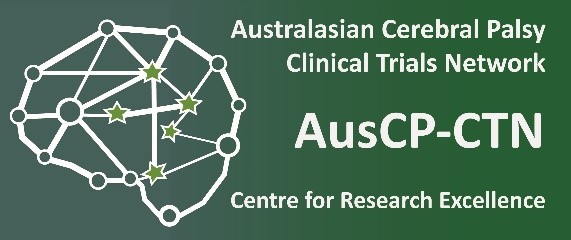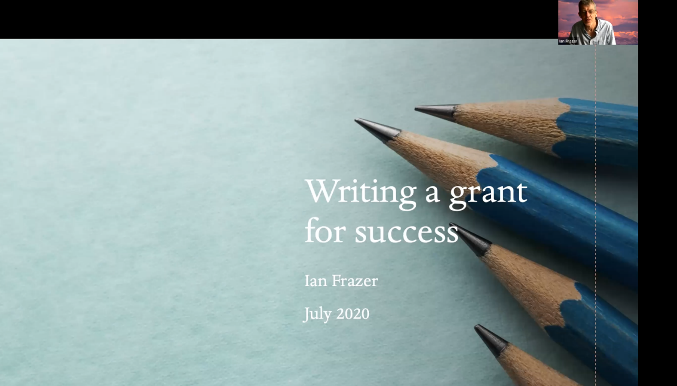AusCP-CTN CRE Education Program

AusCP-CTN aims to foster and develop current and future leaders in cerebral palsy research and clinical practice. Our vision for the future workforce for children with CP is to build national capacity comprising individuals with expertise in more than one key area of research and/or training (basic science/ neuroscience, epidemiology, clinical/health services initiatives, and translation/ implementation). Through our Education Program we aim to provide and facilitate a range of interactive clinical trainings and workshops for researchers and clinical professionals. To date our Education Program has benefited over 2,000+ clinicians, health professionals, researchers, and higher degree research students in upskilling their knowledge and skills in novel paediatric neurological research, diagnosis and interventions. Further information about our Education Program please refer to our website https://cre-auscpctn.centre.uq.edu.au/education.
General Movements Course
Compelling evidence is now available that qualitative assessment of General Movements (GMs) at a very early age is the best predictor for cerebral palsy. This method has become a potent supplement to the traditional kind of neurological examination. AusCP-CTN has liaised with accredited trainers from GM Trust (Prof. Andrea Guzzetta, MD PhD, The University of Pisa, and Prof. Alicia Spittle, The University of Melbourne, and Dr Cathy Morgan, Cerebral Palsy Alliance) and held one Refresher and one Basic course in Townsville (25 – 29 February, 2020), and one Basic and one Advanced course in Brisbane (1 – 4 March, 2020). These courses fulfil the standards specified by the GM-Trust.
The Basic GMs Course provides an introduction to Prechtl's Method on the Qualitative Assessment of General Movements in young infants. This new assessment method has shown its merit for the prenatal and postnatal evaluation of the integrity of the nervous system. The Advanced GMs Course provides additional intensive training in correct judgement. This training deals with the details of the assessment, the proper terminology and techniques, as well as with the application of individual developmental trajectories.
The General Movements courses across both Townsville and Brisbane has attracted over 75 researchers, medical clinicians, and allied health professionals from universities and hospitals across Queensland and New South Wales.


Online Systematic Review Workshop and GRADE Analysis Course
A virtual nine-week Systematic Review Workshop was held online, 1 May – 26 June 2020. The interactive workshop was designed to enable the attendees to gain a comprehensive knowledge and practical experience in conducting a systematic review and meta-analysis of efficacy of treatment, a clinimetric review of measures, and/or a review of diagnostic criteria for a clinical area. Despite challenging time differences, the intensive nine-week workshop attracted 56 attendees (researchers, higher degree research students, medical clinicians and health professionals) from across the time zones, Australia, Nepal, and the USA. From QCPRRC, our in-house Biostatistician, Mark Chatfield and Research Occupational Therapist and PhD Scholar, Andrea Burgess, presented lectures on Biostatistics for Clinical Trials, Meta Analysis and Clinimetrics.
As part of the Systematic Review Workshop, Dr Sue Brennan from Melbourne GRADE Centre were also invited to conduct a one-day interactive session on GRADE analysis. GRADE (Grading of Recommendations, Assessment, Development and Evaluations) is a transparent framework for developing and presenting summaries of evidence and provides a systematic approach for making clinical practice recommendations. Workshop topics included: Overview (GRADE in systematic review, guideline process), Interpreting effect estimates, How to GRADE the evidence, Using the GRADE criteria, Making recommendations.
For more information about our Systematic Review workshop: https://cre-auscpctn.centre.uq.edu.au/event/845/systematic-review-workshop-2020
GWW2020: Online Grant Writing Workshop
As a collaborative initiative with colleagues across the AusCP-CTN CRE, The University of Queensland (Faculty of Medicine), Curtin University (School of Occupational Therapy, Social Work and Speech Pathology), and Telethon Kids Institute, Prof. Roslyn Boyd has led an online three-day intensive Grant Writing Workshop, delivered online via Zoom. The workshop was designed as a professional development opportunity for our researchers and clinicians who are undertaking research to ‘take advantage’ of down time that may have resulted from the COVID-19 pandemic, to work with experts from across the institutes to elevate and sharpen their grant writing skills to better prepare for future funding opportunities.

This is the fourth year Prof. Boyd has facilitated the workshop, and is our biggest – we were fortunate to have keynote presentations including Prof. Ian Frazer on grantsmanship and MRFF, Prof. Anne Kelso on activities/focus of NHMRC, and Dr Jodi Clyde-Smith on investigator grants and impact statements. The workshop has attracted 43 mentees (Early and Mid-career researchers and clinicians from hospitals and research institutes across Qld, NSW and WA), with 19 mentors from both UQ and Curtin who have very generously contributed their time and mentorship on achieving successful research profiles. We have also invited Research Development Managers, Biostatisticians, and Impact Metrics Librarians to work with workshop mentees to refining their draft applications. The workshop covered a range of topics and components in preparing a successful grant application, including consultation with mentors on investigator/partnerships/ideas grant and career directions, project pitch, developing impact statement, impact evidence using alt metrics, sample size and statistics analysis, philanthropic opportunities, and involving consumers and aboriginal communities. The workshop concluded with mock grant panel review and discussions, providing insight to early career researchers on areas to focus on when grant is being reviewed.
For more information and presentations from the workshop is available online: https://cre-auscpctn.centre.uq.edu.au/GWW2020.



